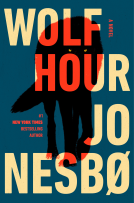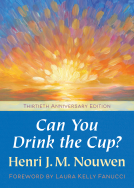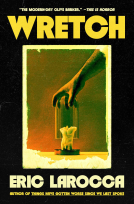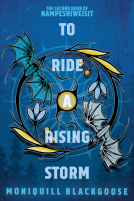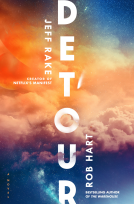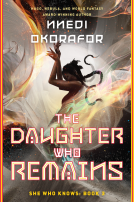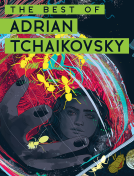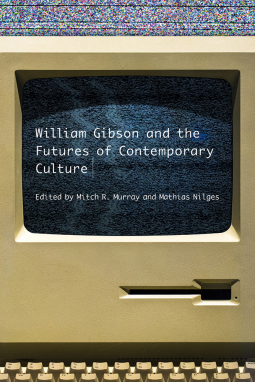
William Gibson and the Future of Contemporary Culture
by Mitch R. Murray & Mathias Nilges, eds.
This title was previously available on NetGalley and is now archived.
Send NetGalley books directly to your Kindle or Kindle app
1
To read on a Kindle or Kindle app, please add kindle@netgalley.com as an approved email address to receive files in your Amazon account. Click here for step-by-step instructions.
2
Also find your Kindle email address within your Amazon account, and enter it here.
Pub Date Mar 15 2021 | Archive Date Mar 15 2021
University of Iowa Press | University Of Iowa Press
Talking about this book? Use #WilliamGibsonandtheFutureofContemporaryCulture #NetGalley. More hashtag tips!
Description
Literary Criticism
William Gibson is frequently described as one of the most influential writers of the past few decades, yet his body of work has only been studied partially and without full recognition of its implications for literature and culture beyond science fiction. It is high time for a book that explores the significance and wide-ranging impact of Gibson’s fiction.
In the 1970s and 80s, Gibson, the “Godfather of Cyberpunk,” rejuvenated science fiction. In groundbreaking works such as Neuromancer, which changed science fiction as we knew it, Gibson provided us with a language and imaginary through which it became possible to make sense of the newly emerging world of globalization and the digital and media age. Ever since, Gibson’s reformulation of science fiction has provided us not just with radically innovative visions of the future but indeed with trenchant analyses of our historical present and of the emergence and exhaustion of possible futures.
Contributors: Maria Alberto, Andrew M. Butler, Amy J. Elias, Christian Haines, Kylie Korsnack, Mathias Nilges, Malka Older, Aron Pease, Lisa Swanstrom, Takayuki Tatsumi, Sherryl Vint, Phillip E. Wegner, Roger Whitson, Charles Yu
Advance Praise
“This rich and overdue collection is worthy of its subject. The editors have put together a multi-faceted consideration of Gibson’s writings that focuses, in particular, on motifs of temporality, technology, and futurity. Its chapters expertly locate both Gibson and science fiction within the longue durée of the future-present.”—Veronica Hollinger, editor, Science Fiction Studies
“Knee-deep in the Jackpot, with nothing but a Hermes 2000 portable typewriter, precise observation, and surgical prose, William Gibson, a one-man singularity, somehow made it all new. Nothing now looks the same. This excellent collection returns the favor: Gibson, historicized, is the Gibson we already knew, but the timeline is not what we imagined.”—Mark Bould, University of the West of England, Bristol
“William Gibson is the writer who taught the world that science fiction is the realism of our time, and it’s his books that made that true. A crucial figure in our cultural history, a poet with a good eye for pattern recognition.”—Kim Stanley Robinson, author, The Ministry for the Future
Available Editions
| EDITION | Other Format |
| ISBN | 9781609387488 |
| PRICE | $90.00 (USD) |
| PAGES | 290 |
Average rating from 8 members
Featured Reviews
 S T, Reviewer
S T, Reviewer
Disclaimer: I would like to thank the editors and publisher for sharing an advanced electronic copy of this book for review.
"William Gibson and the Future of Contemporary Culture" is a collection of 11 full essays that minutely analyze the writings of and about William Gibson. Before reading this book I thoughtlessly assumed it would be similar to book reviews or commentaries that one might read in magazines such as Asimov's Science Fiction or Analog Science Fiction and Fact. This book is, however, very firmly an academic analysis. For example, the Foreword and Introduction sections span 25 pages and include 43 footnotes and bibliographic references. The sum of footnotes, references, and bibliography fill up a full 47 pages of this 286 page book. Some of the essays exceed computer science conference papers in terms of complexity. Some of the essays are academic discussions of what other academics have written about Gibson's works along with the author's contributions to the field. Other essays are quite digestible and help the reader understand Gibson's works better. For example, the essay in Chapter 4 provided meaningful background on the modern history of science in Japan and helped the reader understand the famous Japanese scientists that are mentioned in Gibson's books. Chapter 5 took an interesting look at Gibson's contributions as a screen writer. Chapter 6 looked at the wonderfully Gibson-esque area of Digital Humanities, touched on various types of fictional computational devices throughout the ages, and even included word clouds generated from various corpuses of science fiction. Other chapters look at consumerism and gamification with respect to Gibson's works, as well as the impact of Gibson's ideas on society.
It is clear that everyone involved with this book has a firm appreciation for the creative works and genius of William Gibson. I, too, have enjoyed Gibson's novels and after reading these essays have vowed to read or reread all of his novels in order.
 Claudia D, Reviewer
Claudia D, Reviewer
A comprehensive literary analysis of Gibson’s oeuvre, consisting of a series of essays, which are structured in three parts: Gibson and Literary History, Gibson and the Question of Medium, and Gibson and the Problem of the Present.
I have found the collection a bit uneven: some of his works (Pattern Recognition and The Peripheral) are given too much attention in the detriment of the others. Parts one and two were the most interesting; part three’s essays, more or less, repeat with more details what was already said in the first two parts.
Beside the criticism, there are a lot of intriguing facts that I had no idea about, like that Gibson cowrote two episodes from The X Files with Tom Maddox, Kill Switch (1998) and First Person Shooter (2000), and that "Cultivating the way from self-made man to man-made self and inventing the all-American discourse revisionism, [Benjamin] Franklin deserves the name of protocyberpunk author of alternate history.”
And I will leave here one more quote, on the influence of literature:
“The first chapter of Nature [Ralph Waldo Emerson’s Nature, 1836] includes the following mysterious sentence: “If starts should appear one night in a thousand years, how would men believe and adore, and preserve for many generations the remembrance of the city of God which had been shown!” Without this sentence, Isaac Asimov, a major voice of hardcore science fiction in the mid-twentieth century, could not have come up with the idea for “Nightfall”, published in 1941. Without Emerson’s idea of transcendentalism inspired by Kant and Coleridge and crystallized in Nature, Friedrich Nietzsche could not have developed his theory of superman (Übermensch) mentioned in Thus Spoke Zarathustra (1883), which inspired Arthur C. Clarke to write such masterpieces as Childhood’s End (1953) and 2001: A Space Odyssey (1968). Likewise, Emerson’s post-Unitarian transcendentalism induced even cyberpunk writers to create a brand-new paradigm of science fiction, in which the computer as the all-seeing eye occupies the place of Universal being. While Franklinian self-made man was turned into man-made self, cyberpunkish man-made self if turned into cybertranscendentalist “all-seeing eye”. Herein lies a breakthrough in literary and cultural history.“
I think it’s both suitable for Gibson’s fans and for those who have not read him yet. For the first category, because it makes you see with different eyes a lot of references and details from the books which are very easy to overlook, and for the second, because you’ll know what to expect when you’ll dive in for the first time – if you don’t mind some spoilers; it’s a literary analysis, after all.
In this collection of laudatory essays, the authors comprehensively examine the legacy of Gibson's work through a variety social-cultural lenses.
This work successfully establishes the purpose and existing need for this analysis, and the ideas within are clearly conveyed. The authors are clearly knowledgeable and skilled in the field of literary criticism and it shows in their insights and their vocabulary.
My experience with Gibson was limited prior to reading these essays. He had been on my TBR for a long time, and I had only read "The Difference Engine." When I was approved to read this ARC, I pulled "Neuromancer" and "Pattern Recognition" off my shelf and buzzed through them. With this perspective in mind, I can say that readers with any level of experience with Gibson will enjoy these essays. Reading them has inspired me to read more of Gibson's work - I now have five more of his books borrowed from the library!
The vast majority of Gibson's work is given its due, which is no small feat. There are only eleven essays in this work, yet they deftly span the breadth and depth of Gibson's work. Some of the essays take a broad view of Gibson's work, contextualizing it by comparing it to other literary and cultural reference points, or examining the concepts of time or nonspace in Gibson's body of work. Others take a deep dive into a specific work, connecting concepts and examining conscious decisions made. One example I found particularly interesting was the decision to exclude mention of Mary Shelley from "The Difference Engine;" in this essay the author examines Kant's work "The Modern Prometheus" which I was somehow previously unaware of.
Overall, I found these essays fascinating, engaging and challenging. They are all extremely well-researched and thoroughly cited. My recommendation to readers is to read these essays one at a time, giving yourself plenty of time to study the source material, and digest and synthetize the information.
Readers who liked this book also liked:
L.M Montgomery
Children's Fiction, Comics, Graphic Novels, Manga, Teens & YA



